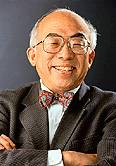- Could Your Grocery Store Meat Be Causing Recurring UTIs?
- Are You Making This Expensive Thermostat Error This Winter?
- Recognizing the Signs of Hypothyroidism
- 10 Strategies to Overcome Insomnia
- Could Artificial Sweeteners Be Aging the Brain Faster?
- Techniques for Soothing Your Nervous System
- Does the Water in Your House Smell Funny? Here’s Why
- Can a Daily Dose of Apple Cider Vinegar Actually Aid Weight Loss?
- 6 Health Beverages That Can Actually Spike Your Blood Sugar
- Treatment Options for Social Anxiety Disorder
Brainpower Peaks in Different Ways as People Age, Study Finds


For everyone over 40 who fears that their mind is slowly failing them, a new study suggests that older brains are better than younger brains in some ways.
While some thinking skills begin to decline as one ages, researchers found that others don’t peak until middle age or even later.
The study, which looked at almost 50,000 people, raises the prospect that people in their 40s and 50s do a better job of translating emotional signals from other people, while seniors have more overall knowledge. Young adults, meanwhile, think faster and have more short-term memory.
“There is no peak age for brain function. It all depends on the particular aspect you are looking at,” said study co-author Laura Germine, a postdoctoral researcher at Massachusetts General Hospital’s Center for Human Genetic Research, in Boston. “While some aspects of cognition are declining, others are still improving.”
The authors launched the study to better understand how thinking skills change over a lifetime. The findings are based in part on an analysis of the responses of slightly over 48,500 people who took online tests on the websites gameswithwords.org and testmybrain.org.
The researchers report that various thinking skills peaked — in general — at different times in life. On average, people think the fastest around age 18 and 19, while their short-term memory peaks at around age 25, and the ability to read people’s emotional states is best in the 40s and 50s.
“Crystalized intelligence,” a measurement of accumulated knowledge that’s based on vocabulary tests, doesn’t tend to peak until people are in their late 60s or early 70s.
What’s going on? It’s not clear, Germine said. “The brain continues to change and mature across adulthood,” she said, “but we don’t know what the impact of those changes is yet.”
The study has some weaknesses. For one thing, it didn’t follow individual people over time, but is instead a snapshot at one point in the lives of people of varying ages. And it didn’t include people who aren’t Internet-savvy, although the researchers also analyzed statistics from studies that did not involve online tests.
The study also conflicts with some previous research on different generations of people, but this could be due to changes in society, Germine said.
Simon Rego, director of psychology training of Montefiore Medical Center/Albert Einstein College of Medicine in New York City, said the study “calls into question” the idea that brainpower is stable for years at a time.
“This shows us, once again, just how complex the brain is, and how our cognitive abilities are complex and likely influenced by multiple factors,” such as aging and life experiences, he said.
How can the research be useful? Germine isn’t ready to recommend that employers only hire workers in certain age ranges based on the thinking skills they need.
“You have to look for whole people,” she said. “The trends we observe apply to the average, and any particular individual will have their own strengths and skills that are not captured by just their age.”
In the big picture, however, she said the findings “give us another hopefully richer and more optimistic window into how the brain changes as we age.”
The study will appear in an upcoming issue of the journal Psychological Science.
More information
For more about aging and the brain, try the U.S. National Institute on Aging.
Source: HealthDay
Copyright © 2026 HealthDay. All rights reserved.










